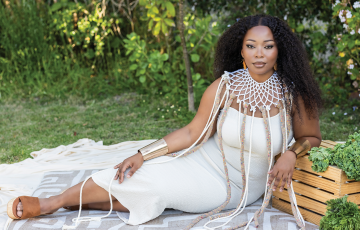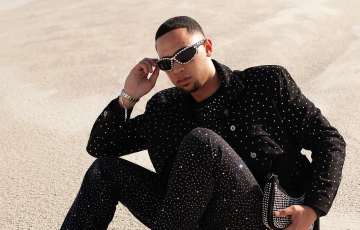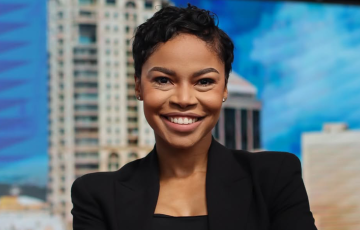The WAGS of SA

From rugby players and cricketers to soccer superstars, we love supporting our sports legends on and off the field. Know what we love even more? Watching their stunning wives and girlfriends next to the field.
View this post on Instagram
PHUNGI BALOYI
This month’s cover star, Phungi Baloyi, has been married to former Kaizer Chiefs goalkeeper Brian Boloyi for twenty years. ‘I have been married for so long, I can’t even remember a time when I wasn’t married,’ she tells Jet Club. The accountant and mother of two has made a name for herself and is an inspiration to many. Phungi is a two-time breast cancer survivor and a great help to many other women with breast cancer. She recently stepped down from her role as chairperson of the Brian Baloyi Family foundation and is focusing on her work at the Pink Warrior Foundation, launching in October. ‘The organisation’s main focus is on breast cancer. We do bi-monthly visits to different parts of Alexandra, Johannesburg, doing breast exams,’ says Phungi.
Read more about Phungi’s inspiring story here: https://www.jetclub.co.za/2022/09/octnov-2022-cover-story-two-time-breast.html
View this post on Instagram
RACHEL KOLISI
This mom, businesswoman and co-founder of RISE Women and The Kolisi Foundation is a WAG to be reckoned with. Rachel Kolisi is the wife of Springbok rugby captain Siya Kolisi, who led the team to victory at the 2019 Rugby World Cup. Together they have shared love, faced criticism (both on- and offline), started a beautiful family, helped underprivileged communities and have crept into the hearts of many. Rachel is fierce and driven, and earlier this year, she shared the news on Instagram that she was going to continue her education and become a student again. We cannot wait for what the future has in store for her!
View this post on Instagram
KGOMOTSO NDUNGANE
Many viewers of the popular Real Housewives franchise got to know Kgomotso Ndungane when she appeared on season one of the Real Housewives of Durban in 2021, but we already knew her as the wife of former Sharks and Springboks rugby player Odwa Ndungane. She is a formidable businesswoman in addition to being a loving wife and mom of two children. After previously working in IT, Kgomotso started her eventing and floral business, Oak Celebrations, and Lelapa, a home, body and bath brand.
View this post on Instagram
AISHA BAKER
Aisha Baker is married to Proteas cricketer Wayne Parnell, but that’s not how we know this WAG. The CEO of Baked Collection, entrepreneur and influencer has been making a name for herself for a long time. She started her blog Baked Online in 2009, which launched her successful career as a businesswoman, influencer and style icon. She has won multiple awards, and in 2016 she was nominated for a Nickelodeon Kids’ Choice award for the best blogger in the African category. In 2019 Aisha won the E! Africa Pop Culture Award for Social Media. She was also listed on the Forbes Africa 30 under 30 list in 2019 in the Creative category, which is an impressive achievement. Aisha and Wayne married in 2016 and are raising two beautiful kids together.
View this post on Instagram
BOKANG MONTJANE
Married to the legendary Bafana Bafana star Siphiwe Tshabalala, Bokang Montjane was sure to make it on to our ultimate WAG list. The former model and beauty queen won Miss South Africa in 2010 and made it to the top seven of Miss World 2011. Together, Bokang and Siphiwe started a children’s clothing brand called SB Kids, available at Jet stores nationwide. The businesswoman and mom chose to enter the world of pageantry again in 2021, when she served as the director of Mrs Universe Africa.
Related articles

Latest Jet club magazine
We’ve got the latest trends, exciting prizes and exclusive savings just for you!
Jet Club will not pass your details to anyone else. By clicking the subscribe button you confirm you have read and agree to the Jet Club Terms and conditions and Jet Club Privacy Statement.
Subscribe

